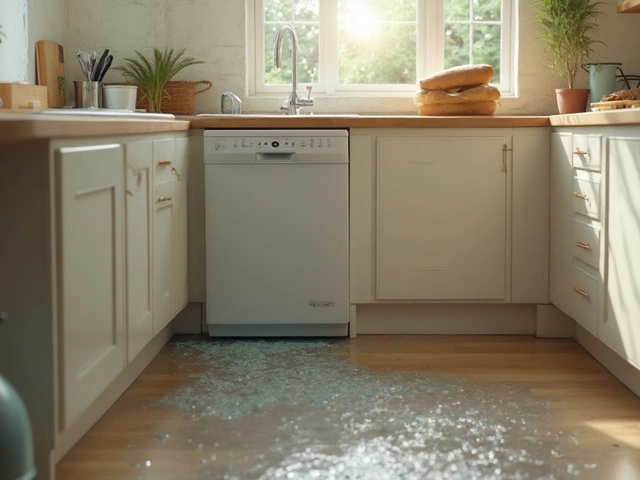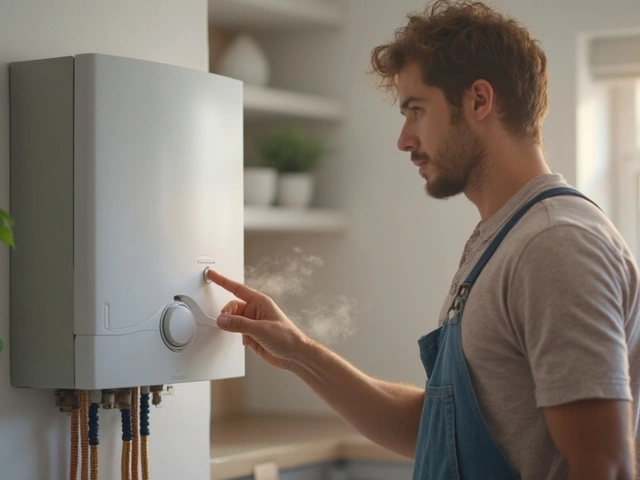Every homeowner knows the panic of a cooker that won’t heat or a fan that stops pulling out steam. The good news? Most kitchen mishaps can be avoided with a few regular checks. Below you’ll find straight‑forward habits that keep ovens, hobs, extractor fans and other appliances humming without costly call‑outs.
Start by giving your oven a once‑a‑month visual. Look for food debris on the walls and clean it while the oven is still warm – a soft cloth does the trick. If the oven takes longer than usual to preheat, test the heating element with a multimeter; a dead element usually means you can replace it yourself in under an hour.
Electric hobs are just as forgiving. When a burner feels loose or flickers, turn off the power at the breaker and remove the top plate. A quick inspection often reveals a cracked ceramic or a loose connection – both easy fixes with basic tools. Keep the surface free of spills; sugar residue can melt and cause stubborn spots.
Extractor fans work best when the filter is clean. Pull out the metal or carbon filter every two weeks, wash it with warm soapy water, and let it dry fully before reinstalling. A clogged filter not only reduces airflow but can overheat the motor, leading to noisy operation or outright failure.
If the fan sounds weak, check the vent duct for blockages. A flexible brush or a vacuum hose can clear out dust and grease buildup. When the fan still struggles, the motor bearings may need lubrication or replacement – a job most DIY‑savvy folks can handle with a screwdriver and a few minutes.
Beyond these core appliances, don’t forget the fridge, dishwasher and microwave. Keep fridge coils free of dust by vacuuming them every three months; a dirty coil raises energy use and can shorten the unit’s life. For dishwashers, run a hot water cycle with a cup of white vinegar to dissolve mineral deposits and keep spray arms clear.
Finally, make a habit of listening. Unusual humming, rattling or a sudden loss of power are early warning signs. Catching a problem early often means a simple part swap instead of a whole‑unit replacement.
When in doubt, call the pros. A qualified technician can diagnose hidden faults safely, especially for gas appliances or complex electrical issues. But with these easy maintenance steps, you’ll keep most kitchen gear in top shape and save both time and money.

If your electric oven suddenly stops working, don't panic. This article explores common issues with electric ovens and provides practical tips for troubleshooting and repair. From understanding how different components work to knowing when it's time to call a professional, you'll find the go-to advice you need to get your oven back in working order. Avoid the hassle of guesswork and get straightforward guidance on keeping your kitchen running smoothly. Practical insights on oven maintenance await you.

Learn how to spot a malfunctioning heat pump, recognize warning signs early, and troubleshoot issues to keep your home comfortable and energy bills in check.

Dishwashers are a staple in modern kitchens, but they often face common issues. So, what's the most frequent problem users encounter? This article dives into typical faults like drainage issues and proposes practical solutions. Understand why your dishwasher might not clean effectively and learn simple DIY fixes to keep it in top shape. By addressing these issues, you'll ensure your dishwasher runs smoothly for years to come.

Leaving an electric oven on overnight sounds harmless, but it could spell real trouble. Learn the risks, facts, and safer options for your late-night cooking needs.

Dealing with a water heater that keeps tripping can be a headache—hot water one minute and a cold shower the next. This article breaks down the most common reasons for this irritating problem, giving you clear steps for figuring out if it’s a simple DIY fix or if you should call in a pro. You’ll get straight talk, not complicated jargon or long-winded explanations. Learn what to check, what parts usually fail, and when your water heater might just be on its last leg. Get the confidence to handle the problem and save yourself a ton of hassle.

Pressure cookers can usually be repaired, and fixing them at home can save both time and money. This article covers how to spot common problems, which parts can be replaced, and when to leave repair jobs to the pros. You'll also find smart tips to keep your pressure cooker running safely. Even if you're not a 'handy' person, a lot of repairs are easier than you’d think. Don't toss out that pressure cooker until you know what can actually be fixed.